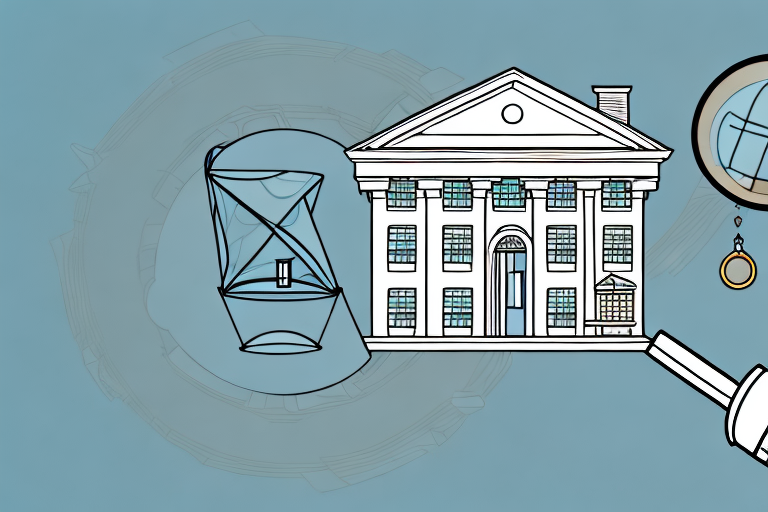Real estate deals can be complex and time-consuming, involving various legal requirements and processes. To ensure a smooth and seamless transaction, many individuals and businesses rely on the expertise of conveyancing professionals. Understanding the role of these professionals in real estate is essential for anyone involved in property transactions.
Understanding the Role of Conveyancing Professionals in Real Estate
Conveyancing professionals play a crucial role in facilitating property transactions. They are legal experts who specialize in property law and possess in-depth knowledge of the intricacies involved in buying and selling real estate.
But what exactly does the process of conveyancing entail? Let’s delve deeper into the basics of conveyancing Sydney in property transactions.
The Basics of Conveyancing in Property Transactions
Conveyancing is the legal process of transferring property ownership from one party to another. It involves numerous steps, such as conducting title searches, preparing legal documents, verifying property details, and facilitating the settlement process.

When it comes to property transactions, attention to detail is paramount. That’s where the expertise of a conveyancer comes into play. They meticulously navigate through the legal intricacies, ensuring that every aspect of the transaction is handled with precision and care.
During conveyancing, the conveyancer acts as a liaison between the buyer and the seller, ensuring that all legal obligations are met, and the transaction is completed smoothly. They are the unsung heroes behind the scenes, working diligently to ensure a seamless transfer of property ownership.
Key Responsibilities of a Conveyancer
A conveyancer’s main responsibilities include:
- Preparing and reviewing legal documents, such as contracts, transfer documents, and mortgage agreements. This involves a meticulous review of every clause and provision to protect the interests of their clients.
- Conducting thorough property searches to identify any potential issues, such as outstanding debts or restrictions on the property. This step is crucial to ensure that the buyer is fully aware of any encumbrances or limitations associated with the property.
- Liaising with financial institutions, government agencies, and other relevant parties to ensure all necessary paperwork is completed. This involves coordinating with multiple stakeholders to gather the required documentation and ensure compliance with legal and regulatory requirements.
- Facilitating the settlement process by coordinating the payment of funds between the buyer, seller, and other involved parties. This includes ensuring that all financial transactions are conducted securely and in accordance with legal guidelines.
As you can see, the role of a conveyancer goes beyond just paperwork. They are the guardians of a smooth and legally compliant property transaction. With their expertise and attention to detail, they provide peace of mind to both buyers and sellers, ensuring that their interests are protected throughout the process.
The Importance of Conveyancing in Streamlining Real Estate Deals
Conveyancing professionals play a vital role in streamlining real estate deals. By ensuring legal compliance and facilitating smooth property transfers, they help minimize potential risks and complications associated with property transactions.
Ensuring Legal Compliance in Property Transactions
One of the primary responsibilities of conveyancers is to ensure that all legal requirements and obligations are met during the property transaction. They conduct thorough title searches to identify any existing liens, mortgages, or other encumbrances on the property.
Through their expertise, conveyancers can navigate complex legal frameworks and regulations, ensuring that the buyer is protected from any unforeseen legal issues. By verifying the legality and authenticity of the property’s title, the conveyancer helps protect the buyer’s interests and ensures that the transfer of ownership is legally valid.
Facilitating Smooth Property Transfers
Conveyancing professionals streamline property transfers by coordinating all the necessary paperwork and processes involved in the transaction. They work closely with all parties involved, such as buyers, sellers, real estate agents, and financial institutions, to ensure a seamless transfer of ownership.
Efficient handling of legal documents, settlement funds, and communication between parties reduces the chances of delays or complications, allowing for a smoother and more efficient real estate deal. Additionally, conveyancers also play a crucial role in resolving any potential disputes that may arise during the transaction process.
Moreover, conveyancers are well-versed in the intricacies of property laws and regulations. They stay up-to-date with any changes in legislation that may impact property transactions, ensuring that all parties involved are aware of their rights and responsibilities.
Furthermore, conveyancers also assist in coordinating property inspections, ensuring that the buyer is fully aware of the condition of the property they are purchasing. This helps prevent any surprises or disputes after the sale is finalized.
In conclusion, conveyancing professionals are essential in streamlining real estate deals. Their expertise in legal compliance and their ability to facilitate smooth property transfers ensure that buyers and sellers can navigate the complexities of property transactions with confidence and peace of mind.

The Process of Conveyancing: A Step-by-Step Guide
Understanding the conveyancing process is essential for individuals looking to buy or sell real estate. Let’s walk through the key steps involved:
Pre-contractual Stage: Initial Document Preparation
Before the contract is signed, the conveyancer prepares and reviews the necessary legal documents, such as the contract of sale, transfer of land, and statement of adjustments. This meticulous process ensures that all the legal aspects of the transaction are properly documented and accounted for.
Additionally, the conveyancer conducts thorough property searches to assess any potential risks associated with the property. These searches may include checking for any outstanding mortgages, liens, or encumbrances on the property. By doing so, the conveyancer helps the buyer make an informed decision and protects their interests.
During this stage, the conveyancer also advises the buyer on any special conditions or clauses that should be included in the contract to further safeguard their interests. This could include provisions related to building inspections, finance approvals, or any other specific requirements the buyer may have.
Post-contractual Stage: Legal Work and Settlement
Once the contract is signed, the conveyancer moves into the post-contractual stage, where they carry out various legal tasks to ensure a smooth and secure transaction.
One of the crucial tasks during this stage is verifying the property’s title. The conveyancer thoroughly examines the title documents to confirm the seller’s legal ownership of the property and to identify any potential issues or discrepancies. This step is essential to protect the buyer from future complications or disputes.
In addition to title verification, the conveyancer conducts further property searches to uncover any hidden surprises. These searches may include investigating planning and zoning restrictions, checking for any pending development applications in the area, or examining the property’s compliance with local regulations. By doing so, the conveyancer ensures that the buyer is fully aware of any potential risks associated with the property.
During the settlement stage, the conveyancer plays a pivotal role in coordinating the exchange of funds between the buyer and the seller. They ensure that all financial obligations are met, including the payment of stamp duty, taxes, and any outstanding fees. The conveyancer also liaises with the buyer’s lender to facilitate the transfer of funds for the purchase.
Furthermore, the conveyancer takes care of the necessary paperwork and legal formalities required for the transfer of ownership from the seller to the buyer. This includes registering the transfer of land with the relevant government authority and updating the title records to reflect the new ownership.
By diligently guiding both the buyer and the seller through each step of the conveyancing process, the conveyancer ensures a smooth and successful real estate transaction. Their expertise and attention to detail provide peace of mind to all parties involved, making the process as stress-free as possible.

The Benefits of Hiring a Conveyancing Professional
While it is possible to handle the conveyancing process independently, hiring a qualified conveyancer offers several advantages:
Saving Time and Reducing Stress in Real Estate Deals
Real estate transactions involve extensive paperwork and legal complexities. By hiring a conveyancing professional, individuals can focus on other aspects of the transaction while leaving the legal work to the experts.
The conveyancer takes care of drafting and reviewing legal documents, conducting property searches, and coordinating with various parties involved. This saves time and reduces stress for both buyers and sellers, ensuring a smoother overall experience.
Avoiding Potential Legal Pitfalls in Property Transactions
The conveyancer’s expertise helps identify and mitigate potential legal risks associated with property transactions. They ensure that all legal requirements are met and guide buyers and sellers through the intricacies of the process.
Having a conveyancing professional by your side significantly reduces the chances of costly mistakes or disputes arising from overlooked legal obligations or loopholes.
Furthermore, a conveyancing professional can provide valuable advice and guidance throughout the entire transaction. They have a deep understanding of the local property market and can offer insights on property values, market trends, and potential risks specific to the area.
Additionally, a conveyancer can assist in negotiating the terms of the contract, ensuring that your interests are protected. They can review the terms and conditions, identify any potential issues, and make necessary amendments to safeguard your rights as a buyer or seller.
Moreover, a conveyancing professional can also help with the complex financial aspects of the transaction. They can assist in calculating stamp duty, arranging for property inspections, and coordinating with lenders and other relevant parties to ensure a seamless financial process.
Lastly, hiring a conveyancer provides peace of mind. Knowing that a qualified professional is handling the legal aspects of your property transaction can alleviate stress and give you confidence that everything is being taken care of properly.
In conclusion, hiring a conveyancing professional offers numerous benefits, including saving time, reducing stress, avoiding legal pitfalls, receiving valuable advice, ensuring contract protection, managing financial aspects, and providing peace of mind. It is a wise investment that can greatly enhance the overall experience of buying or selling a property.
Choosing the Right Conveyancing Professional for Your Needs
When selecting a conveyancing professional, it is crucial to consider a few key factors:
Key Factors to Consider When Hiring a Conveyancer
1. Experience and Expertise: Look for a conveyancer with a solid track record and extensive knowledge of property law.
2. Professional Accreditations: Check if they are a member of relevant professional bodies or associations, indicating their commitment to high standards.
3. Reputation and Reviews: Read reviews and seek recommendations from trusted sources to gauge their reputation and service quality.
4. Transparency and Communication: Choose a conveyancer who proactively communicates and keeps you informed throughout the process.
Understanding the Costs of Conveyancing Services
Conveyancing fees can vary depending on various factors. It is essential to discuss and clarify the conveyancer’s fee structure upfront. Additionally, inquire about any additional costs, such as search fees, settlement fees, or disbursements.
While cost is a factor, prioritize the quality and reliability of the conveyancing service to ensure a smooth and successful real estate deal.
In conclusion, the expertise of conveyancing professionals plays a crucial role in streamlining real estate deals. By understanding their role, responsibilities, and the process involved, individuals can make informed decisions and ensure a seamless transaction. Hiring a conveyancer offers numerous benefits, including time savings, stress reduction, and legal protection. However, it is vital to choose the right professional based on experience, reputation, and communication. With their guidance, individuals can navigate the complexities of property transactions with confidence and enjoy a smooth and successful real estate deal.
More to read: What You Need to Know About Property Transfers





